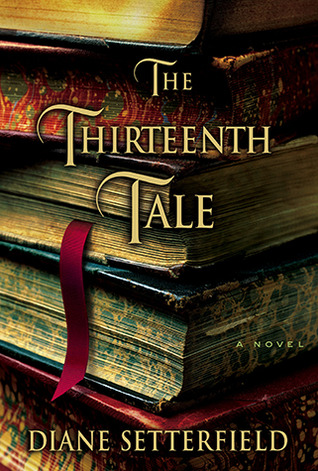“Everybody has a story. It's like families. You might not know who they
are, might have lost them, but they exist all the same. You might drift
apart or you might turn your back on them, but you can't say you haven't
got them. Same goes for stories.”
As those of you know who read this blog on the regular (are there such people? I hope so), I am a huge Kate Morton fan. Part of this is due to my intense love of historical fictions that are set in the English countryside. It doesn't matter when, or precisely where - if your book is set in the UK, in the past? I'm going to be into it. The degree will vary based on the story being told, the depth of the characters, and the style of the writing. Still, I am always compelled to read books that throw me into English countryside, with it's pastorals and intrigues. This is probably also why I'm so drawn to Downton Abbey, but I digress. Kate Morton is a particular favorite because she also successfully bounces between the past and the present, with her protagonist either unearthing a secret about someone else, or discovering one about him or herself.
Setterfield employs this technique as well. In the present, book antiquities specialist and part time amateur biographer Margaret Lea is pulled into the life of famous novelist Vida Winter. Ms. Winter approaches her out of the blue, requesting her skills to take down her true story, which she has never shared any part of in previous interviews. She is gravely ill and running out of time, so she says, and it is time for the story to be told. Margaret is hesitant to accept the offer - she has never read any of Ms. Winter's many successful novels, and is hardly an accomplished biographer - but after devouring most of her catalog, Margaret can't help but take the trip to see what Ms. Winter has to say. From there, we begin our time jumps, hearing the story Ms. Winter tells as Margaret stays at her rather eccentric estate. The book travels between Margaret's troubled experiences in the present and Ms. Winter's colorful past.
This is a solid book, if not one that I'm likely to find myself picking up a second time. Margaret is a hard character to connect to, which is very much intentional, but makes it hard to want to listen to her as a narrator. I've never had siblings, so the fact that much of this book revolves around the unique relationship between twins lost a little in translation for me. The bonds of sisterhood, twin or otherwise, are something foreign to me, despite how close I am with many of my friends. This left me a bit in the cold when it came to really becoming invested with the story.
I also felt this had a really slow burn. It took quite awhile for me to be drawn in, and once I was, it wasn't the type of book I had a problem putting back down again, at least not till the last 25% of it or so (I read it on my e-reader, so page numbers are something I can't really reference). There is a lot to set up for things to make sense, and it feels like it meanders a bit. I honestly didn't care all that much for Margaret's subplot. I get why it was there, in order to connect her to Ms. Winter and the story, but it didn't resonate for me.
I did, however, very much enjoy the way they talked about literature and its impact. Both women are characters deeply drawn to the written word, and their ruminations on books and their value are wonderful. There is a particularly fascinating challenge issued later in the book that I won't spoil - a game of sorts, that Ms. Winter plays with Margaret regarding books vs people, that I absolutely loved.
It's a well written piece of fiction, and the story of Ms. Winter's past is an interesting one. It's a book I would recommend, but not something I'd drop everything to pick up.

I liked this a lot when I read it but it's been a few years. I'm not sure if I would want to revisit it or not, though. I've only read Morton's The House at Riverton, and while I enjoyed it, it also seemed very derivative to me, which is of course entirely influenced by previous reading experiences - I think she was a very capable writer, the story simply felt familiar. I have The Distant Hours in my reading pile though since I did like her; just need to get through the giant tome I'm working on now. Have you read The Shadow of the Wind? It's another one of those gothic novels filled with secrets from the past, and the thing I liked about it is that the characters love books so it's also a novel about books. It's supposed to be one of four interrelated novels, and I think the third just came out, but I had such a hard time remembering the first one by the time I read the second one that I'm considering waiting for all four to be available and read them together.
ReplyDeleteI can see where you'd have that criticism of Morton. She happens to work really well for me. Then again, I also love Nora Roberts, and pretty much every piece that woman writes I can storyboard in the first two chapters, so I guess derivative isn't necessarily a huge objection for me! Haven't read The Shadow of the Wind, but I'll definitely look into it! Thanks!
ReplyDelete